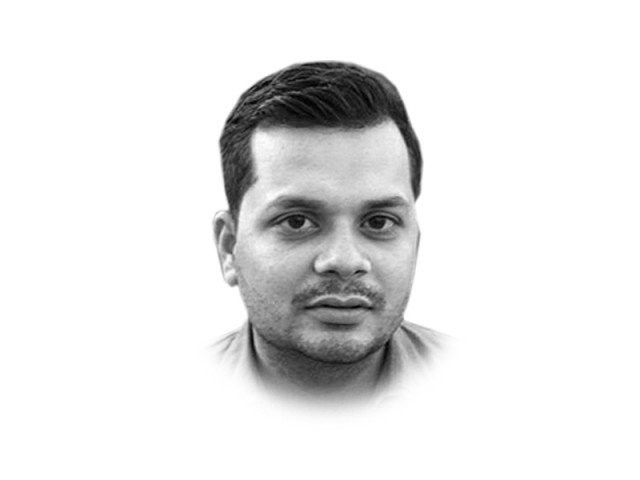The digital divide bogey
Instead of whining about digital divide, we need to use the digital to reduce all kinds of divides in the world.

The writer is a journalist with Scroll.in in Delhi. He is a Multani from Lucknow who finds himself trapped in the Republic of South Delhi.
He tweets @DilliDurAst
In the TV studios, the question has remained nearly the same since 2006: why is there so much hate and bile and abuse? Everywhere in the world, social media broke the monopoly of the mainstream media over public discourse. This meant that for the first time, there was a platform to say things about the media and its personnel on a daily basis. It’s a reality journalists took a long time to adapt to.
In the platforms other than TV studios, however, the question that one encounters a lot is about the digital divide. I thought that the complaint had become a thing of the past, but the other day I heard it again. As I go about my presentation I can almost predict by looking at the faces as to who will come up with the DD bogey. It’s written on the face. What about the digital divide? Yes, what about it? What about the poor and the unlettered? Aren’t they missing the bus?
I once set out to do a story on tuberculosis in the Bundelkhand region of Uttar Pradesh, one of the poorest regions of India. I met men, women and children suffering from acute tuberculosis. Armed with my Google research and naivete, I asked them why they don’t eat green vegetables. Those will take care of their TB. “Do you know how much vegetables cost?”
I met one woman, the memory of her small hut still vivid in my mind, who was so frail I was sure she was not going to live long. The government was likely to give her Rs 20,000 to fight tuberculosis, but she owed Rs 10,000 to the milkman alone! She hadn’t paid him in ages but he still gave her a glass a day. This she gave to her two children. I was meeting such people through a local activist, who didn’t let me give this woman the Rs 500 I wanted to. “Are you mad!” the activist said, “You’ll be mobbed!” The next day I bought fruits to give such people, not for them but to lessen my own sense of shame and guilt. As the activist had predicted, I was mobbed. The entire village wanted fruits for tuberculosis.
This journalistic excursion was so depressing that it seemed too petty to write the stories. In a country as poor as that, we are asking about digital divide?
What about the newspaper divide? So many in this country are poor or unlettered or both, and thus don’t get to read newspapers. India never really invested in its libraries. Yet we don’t hear people complain about the newspaper divide.
Radio is a medium that reaches deep inside the jungles too. Even the Maoists listen to radio. Do you think the Dalit women dying of hunger and TB in Bundelkhand have the money to buy radio?
What about the TV divide? Some of those who can buy a TV set can barely watch it. I just read a news story about a village near Panipat getting electricity for the first time ever. Three hours from Delhi!
What about the English divide? What about the rural-urban divide? What about the caste divide?
As people rise out of poverty and illiteracy, slowly but steadily, there’s no doubt they will be on the information highway. I can already see the digital divide reducing when I see auto wallahs in Delhi learn from each other how to Google pornography on their second-hand Blackberrys. Or when I see Shubhranshu Choudhary’s CGNet Swara, a project where tribals call on a number to complain about their problems and the audio is posted on the CGNet Swara website. Or when I see how easy it is to type phonetically in scripts and languages other than English. Or when I see friends donating their old computers to their house-helps instead of selling them.
These things are reducing the digital divide because people from different backgrounds have worked to reduce the digital divide. They didn’t just rant in a seminar room that the internet is a medium of the elite, so few are on it, and those not on it are getting left behind. The internet is the most powerful means of communication for humanity. Instead of whining about digital divide, we need to use the digital to reduce all kinds of divides in the world.
Published in The Express Tribune, June 13th, 2014.
Like Opinion & Editorial on Facebook, follow @ETOpEd on Twitter to receive all updates on all our daily pieces.













COMMENTS
Comments are moderated and generally will be posted if they are on-topic and not abusive.
For more information, please see our Comments FAQ